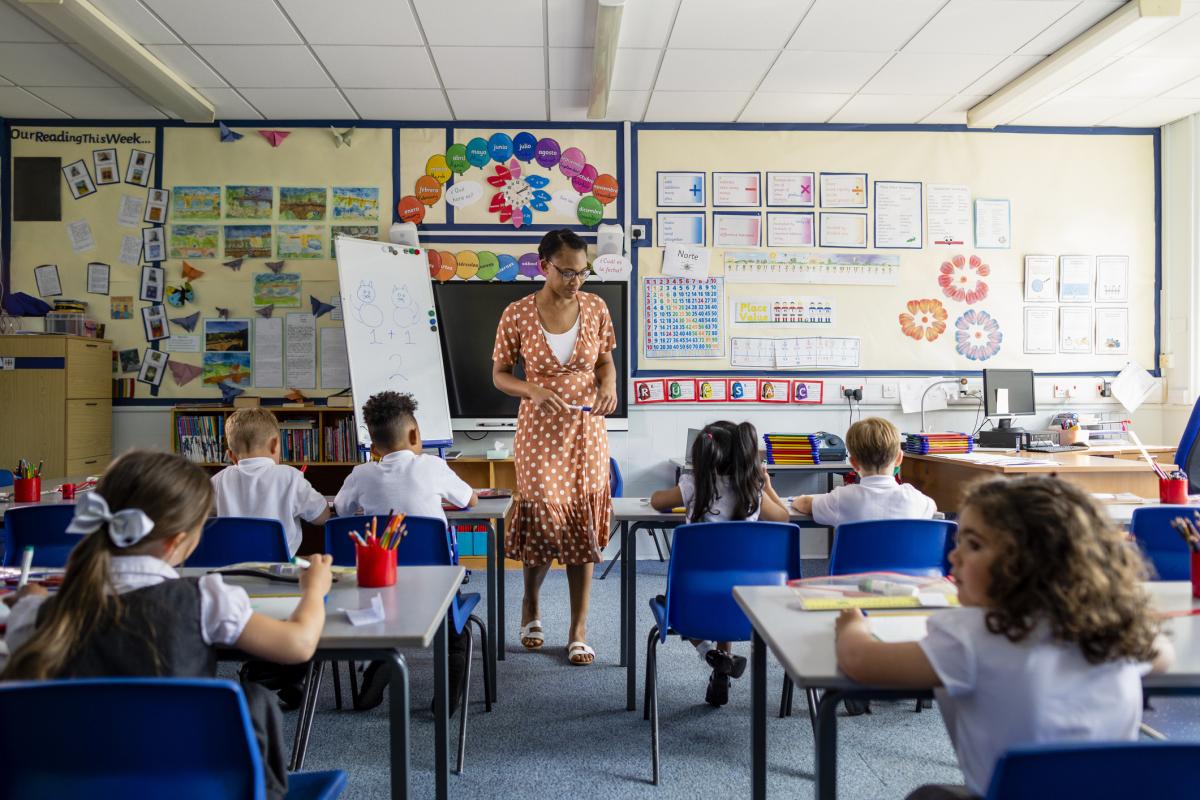Case study: Enfield Schools, London Borough of Enfield

Delivering decarbonisation roadmaps for Enfield schools
What is the project?
Project stage: Plan
Schools in Enfield currently contribute 32% of Enfield Council’s Scope 1 and 2 emissions. This project presents a good opportunity to establish a schools’ decarbonisation template for Enfield’s schools as well as those in other London boroughs.
Decarbonisation roadmaps are being developed with a sample of schools in Enfield. The project aims to develop standardised, replicable and scalable models, so that other London schools can benefit from the findings and outcomes.
To achieve this, the project will analyse procurement and delivery options including:
- routes to market
- key supply chain partners to inform a delivery framework
- upskilling key roles on site data collection and checklists.
The project offers other London boroughs learning opportunities, including:
- facilitating finance team workshops
- supporting the use of tools
- developing working groups to focus on approaches where there are cohorts of boroughs with similar requirements.
This will complement the Mayor of London’s Greener Schools programme.
“We’re excited to work with the Greater London Authority and its partners to help make schools in Enfield more environmentally friendly. This project is really important because it will not only help the schools, but also everyone who lives in Enfield. It will support Enfield Council’s main goal of making the borough greener and using energy more efficiently.
“We continue to play our part in making our city greener. As a council, we’re committed to becoming carbon neutral by 2030.”
Councillor Sabri Ozaydin, Cabinet Member for Climate Action and Placemaking, Enfield Council
Who does it support?
This project will initially support schools in Enfield, managed by the local authority, followed by schools located across other London boroughs.
What support is being offered?
Various partners in the Zero Carbon Accelerator Alliance are delivering project support at the planning and procurement stages:
- Mott MacDonald will develop content for webinars and events, undertake project oversight and management and act as lead facilitator.
- Zerogram are leading the delivery of decarbonisation roadmaps, creating toolkits and supporting wider stakeholder group training.
“Zerogram are leading the delivery of decarbonisation roadmaps for various schools in Enfield with a view to drawing out key cross cutting themes that will feed into a broader London schools archetype model. Working with Mott MacDonald, we aim to create a toolkit that will guide council staff, school site managers and other operational staff to undertake simplified, energy efficiency audits in-house.
“This project will also support wider stakeholder group training programme across wider London borough organisations to enable the one to many approach to maximise the impact of this project.”
Prash Kidiyoor, Managing Director, Zerogram
What technology is involved?
- IES software to extrapolate interventions identified across archetype buildings across London.
- Helioscope, energyPRO and other solutioning tools to enable desktop feasibilities.
What tenures/building types are included?
Schools and their relevant archetypes.
How does this project align with the Zero Carbon Accelerator’s principles?
The project aims to make schools across London more energy efficient and reduce Scope 1 and 2 carbon emissions. The project fosters innovation and will boost the availability and consistency of input data sets, which will support the development of decarbonisation interventions.
We will share learnings from the project through:
- Interactive events, workshops and webinars with other London boroughs.
- The templates and guidance will be shared on the Zero Carbon Accelerator’s Knowledge Hub, detailed further below.
What Knowledge Hub resources are we creating?
With every Zero Carbon Accelerator project, we aim to create resources that can inspire and support other organisations on their decarbonisation journey.
Procurement and delivery options analysis will identify scalable and replicable routes to market and key supply chain partners.
Working groups will support the development of Green Book compliant business case templates and approval report templates to be adapted for individual cabinet approval.
We will develop training material for school site managers or central council team staff across wider boroughs around site data collection and checklists.
Standardised templates and toolkits for decarbonisation reports and pathways will be developed and shared with wider London boroughs to encourage consistent data capture across the city.
What’s the project timeline?
The project runs from November 2024 until October 2025.